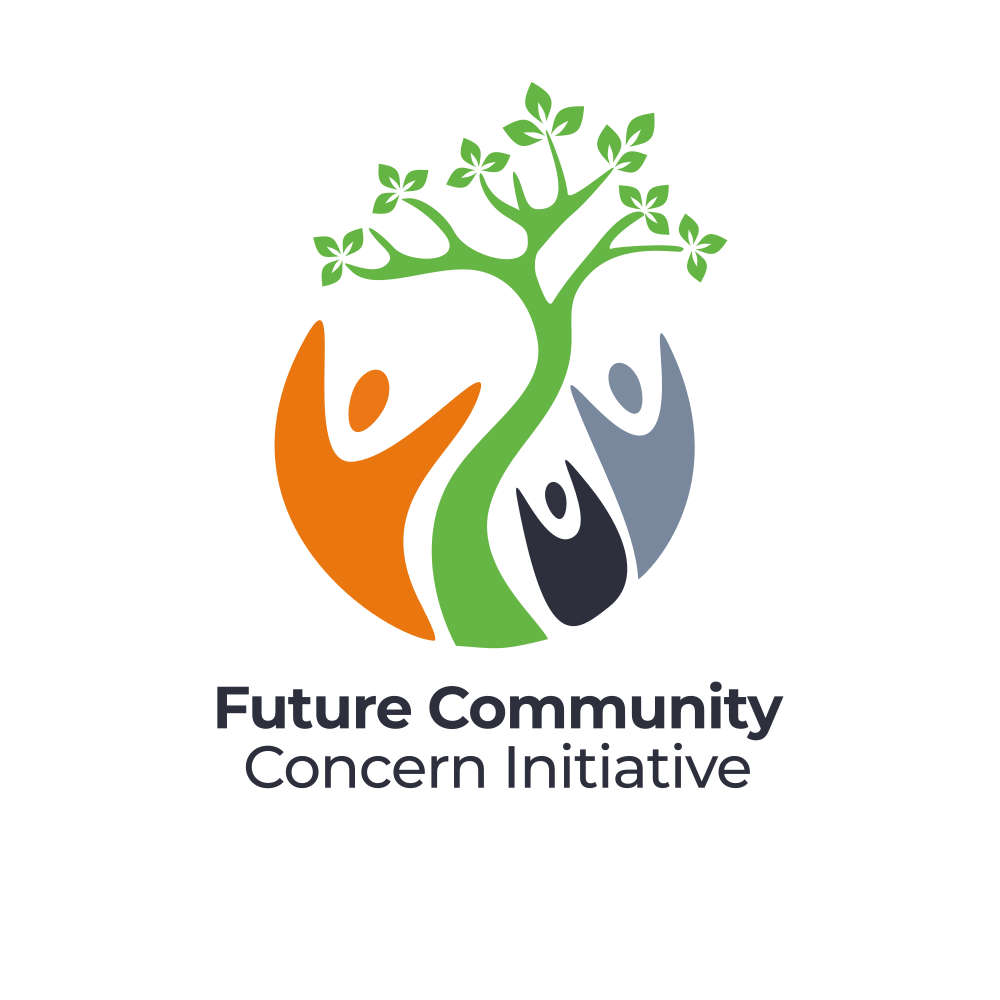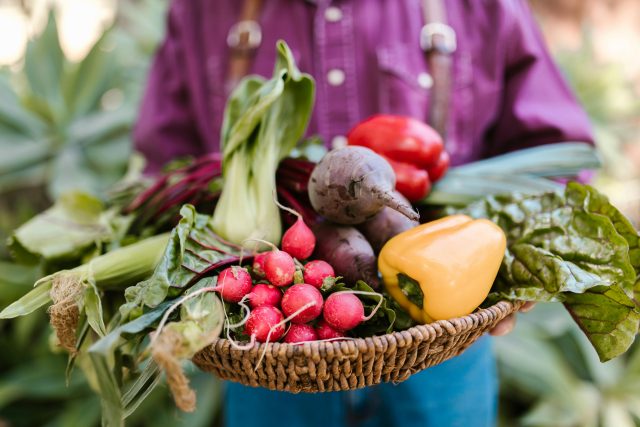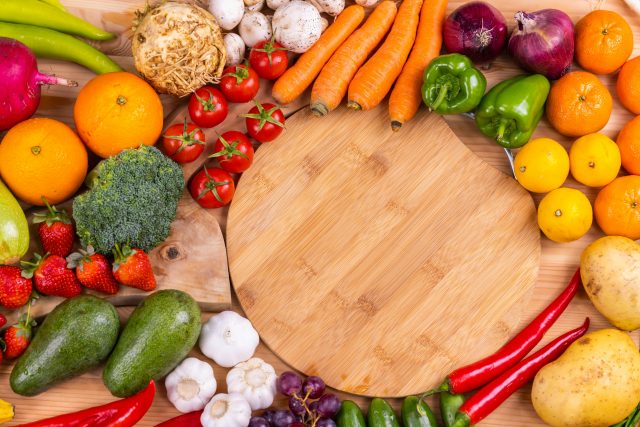1. INTRODUCTION: A NEW KIND OF FARMING FUTURE
Picture a mother in Isinya walking through a local market, selecting fresh spinach for her family. She passes several stalls, but stops at one that proudly displays a small sign: “Organic – Grown Without Chemicals.” It’s not just the produce that catches her eye, it’s the promise of a healthier life.
Once seen as a luxury reserved for the wealthy, organic farming is now taking root in Kenya’s semi-arid regions as a pathway toward climate resilience, better nutrition, and sustainable livelihoods.
At Future Community Concern Initiatives (FCCI), we believe that organic farming is not just about growing food. It’s about growing dignity, opportunity, and resilience, especially in arid and semi-arid lands (ASALs) like Kajiado County.
2. WHY NOW? THE RISING DEMAND FOR ORGANIC FOOD IN KENYA
Organic food is no longer a niche, it’s becoming the norm.
Urban families across Nairobi, Kajiado, and Machakos are choosing chemical-free, nutrient-rich foods to combat lifestyle diseases like diabetes and hypertension. The demand for organic produce is growing rapidly, especially in:
- Middle-income households looking for healthier diets
- Restaurants and hotels that serve farm-to-table meals
- Supermarkets and green grocers expanding their organic sections
- Export buyers in Europe, the UAE, and Asia, hungry for traceable organic products
This growing appetite for safe, sustainable food presents a new frontier for farmers, especially those in marginalized regions seeking better incomes and climate-smart alternatives.
3. FROM STRUGGLE TO SUCCESS: MEET MARY FROM ISINYA
Take Mary Naserian, a 29-year-old mother of two from Isinya. Just a year ago, she struggled to make ends meet growing conventional tomatoes that failed during a dry spell. Today, after completing FCCI’s climate-smart training and switching to organic spinach, amaranth, and herbs, Mary now earns three times more through direct sales to local organic hubs.
Her crops are resilient, her soil is healthier, and her children are eating better than ever before. “I used to think organic was just for the rich. Now I see it’s the future for us too,” she says.
4. HIGH IMPACT, HIGH RETURN: THE ECONOMIC POWER OF GOING ORGANIC
Organic farming isn’t just about sustainability, it also makes economic sense. When done right, it offers strong, steady returns even on small plots.
Here’s how Kenyan farmers are already earning:
- Quarter-Acre Model – Growing fast-selling leafy greens like sukuma wiki, spinach, and managu can generate over Ksh 250,000–400,000 annually.
- Value Addition – Drying herbs, making juices, or packaging veggies can double profits.
- Direct Marketing – Selling via WhatsApp, farm stalls, or deliveries boosts returns by 30–50%.
By cutting out middlemen and offering trusted quality, farmers can earn more and build stronger customer relationships.
5. WHY ORGANIC WORKS FOR DRYLANDS AND ASALS
Many assume that organic farming is only viable in green, fertile regions. But climate-smart organic farming is proving especially powerful in arid and semi-arid areas like Kajiado.
How?
- Compost-based soil building improves fertility over time
- Smart irrigation like drip systems saves water
- Intercropping & crop rotation boost yields and reduce pests naturally
- Drought-tolerant crops such as moringa, cassava, and amaranth thrive organically
With the right training and tools, ASAL communities can transform their landscapes and their lives.
6. CHALLENGES? YES. BUT SOLUTIONS ARE WITHIN REACH
Let’s be real, organic farming has hurdles. But they’re not impossible to overcome.
| Challenge | Community Solution |
| High certification costs | Use group certifications via cooperatives like KOAN |
| Pest & disease pressure | Adopt Integrated Pest Management (IPM) and organic compost |
| Market access | Build direct links to consumers and organic food hubs |
| Lack of training | Partner with FCCI’s demo farm programs and mentorships |
| Initial low yields | Focus on soil health restoration for long-term gain |
Organic farming takes patience, but the rewards, financial, nutritional, and environmental, are worth it.
7. THE FARM-TO-TABLE MOVEMENT: TAKING CONTROL OF MARKETS
More and more Kenyan farmers are cutting out brokers and selling directly to customers. Through this model, farmers:
- Retain up to 50% more of their earnings
- Build customer loyalty and brand identity
- Create a trusted, traceable supply chain
At FCCI, we teach farmers to use WhatsApp groups, community markets, and even basic e-commerce tools to market their produce. Branding, packaging, and storytelling aren’t just for big businesses, they’re for empowered smallholders too.
8. HOW TO GET STARTED: A STEP-BY-STEP PATH FOR ASPIRING ORGANIC FARMERS
If you’re in Kajiado, Machakos, or another ASAL region, here’s how you can begin:
- Choose Your Crop – Start small with crops like spinach, moringa, or herbs (mint, basil).
- Train First – Attend a training session at FCCI’s Climate-Smart Model Farm in Isinya.
- Access a Plot – Lease a fully serviced farming plot through FCCI’s community leasing program.
- Start Composting – Use local materials to improve soil and reduce costs.
- Get Certified (Optional) – Begin with KOAN’s local group certification programs.
- Market Smartly – Sell through WhatsApp, local markets, or join a co-operative.
-
THE BIGGER PICTURE: HOW ORGANIC FARMING BUILDS RESILIENT COMMUNITIES
Organic farming isn’t just about profit, it’s about people and planet.
- It protects soil fertility and biodiversity
- It reduces water wastage and chemical runoff
- It creates rural jobs for youth and women
- It improves nutrition at household level
- It offers export opportunities with premium prices
By investing in organic agriculture, communities like those in Kajiado are not just feeding themselves, they are shaping a sustainable future that works with nature, not against it.
10. HOW FCCI IS SUPPORTING LOCAL FARMERS
At FCCI, we’ve developed a hands-on support ecosystem for farmers who want to transition to organic and climate-smart farming:
- Training Programs – Practical workshops and mentorship at our Isinya Model Farm.
- Lease-a-Plot Access – Affordable, serviced land for those ready to grow.
- Market Linkages – We connect farmers with local buyers, cooperatives, and exporters.
- Technical Support – Ongoing guidance on crop selection, pest control, and irrigation.
Whether you’re just starting or looking to scale, FCCI walks with you every step of the journey.
FREQUENTLY ASKED QUESTIONS (FAQS)
-
Is organic farming really viable in semi-arid areas like Kajiado?
Yes! With the right practices, like mulching, smart irrigation, and composting, farmers in dry regions are seeing strong yields and returns.
-
How much do I need to start?
Even with just a quarter-acre and basic inputs, farmers can start small and grow over time. FCCI helps reduce barriers through subsidized leasing and training.
-
Can I sell my produce without certification?
Yes. Local markets and direct buyers often value trust and transparency more than formal certification, especially when you’re starting out.
-
Does FCCI provide training for beginners?
Absolutely. Our hands-on training programs are designed for farmers of all experience levels, especially women and youth in ASAL areas.
-
How do I join FCCI’s lease-a-plot or training programs?
Reach out via +254-721-472-628 or visit our Model Farm in Isinya to learn more and sign up.
FINAL WORD: THIS IS OUR MOMENT
The future of farming in Kenya is organic, resilient, and inclusive. As climate challenges intensify, we must lean into solutions that heal our soil, nourish our families, and uplift our communities.
Whether you’re a farmer, youth leader, or development partner, now is the time to invest not just in crops, but in communities, climate, and capacity.
At FCCI, we’re ready to walk this journey with you.
📞 Ready to get started?
Join our next training or book a farm visit in Isinya.
Reach out via +254-721-472-628 or visit our Model Farm in Isinya to learn more
Let’s grow a better future, together.



